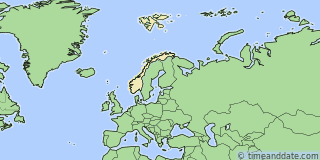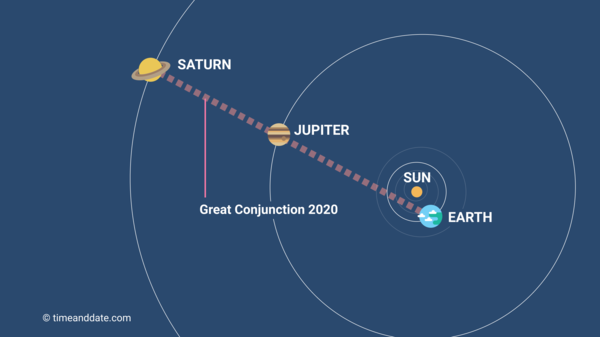Two Comets in October?
- Around mid-October, C/2023 A3 (Tsuchinshan-ATLAS) may be visible after sunset. Show Tsuchinshan-ATLAS on our Night Sky Map (below).
- There were hopes that C/2024 S1 (ATLAS)—a Kreutz sungrazer—might become bright toward the end of October. However, the latest indications are discouraging. Show C/2024 S1 on our Night Sky Map (below).
Our Interactive Night Sky Map simulates the sky above Longyearbyen. The Moon and planets have been enlarged slightly for clarity. On mobile devices, tap to steer the map by pointing your device at the sky. Need some help?
Tonight's Sky in Longyearbyen, Oct 21 – Oct 22, 2024
Mars rise and set in Longyearbyen
View before sunrise.
Mars can best be seen in the hours just before sunrise. Visibility deteriorates as the sky gets brighter.
Time:
Altitude: °
Direction: °
Jupiter rise and set in Longyearbyen
View in the early morning.
Jupiter can be seen for more than 20 hours during the late night/early morning and until sunrise.
Time:
Altitude: °
Direction: °
Saturn rise and set in Longyearbyen
View in the night
Saturn can be seen for more than 6 hours during the night. It is very close to the horizon, making it fainter because the light has to cover a larger distance when traveling through the Earth's atmosphere. Make sure to get an unobstructed view with as little light pollution as possible.
Mon, Oct 21 ↑6:46 pm
Tue, Oct 22 ↓1:05 am
Time:
Altitude: °
Direction: °
Uranus rise and set in Longyearbyen
Most of the night until sunrise. Bring binoculars.
Uranus is visible during most of the night, but it is best viewed in the early morning hours and until sunrise. You may need binoculars.
Time:
Altitude: °
Direction: °
Neptune rise and set in Longyearbyen
After sunset and most of the night. Use binoculars.
Neptune is visible during most of the night, but it is best viewed in the late evening hours after sunset. It is quite close to the horizon, making it fainter because the light has to cover a larger distance when traveling through the Earth's atmosphere. Make sure to get an unobstructed view. Very faint, use binoculars.
Mon, Oct 21 ↑5:18 pm
Tue, Oct 22 ↓4:17 am
Time:
Altitude: °
Direction: °
Planets Visible in Longyearbyen
| Planetrise/Planetset, Tue, Oct 22, 2024 | ||||
|---|---|---|---|---|
| Planet | Rise | Set | Meridian | Comment |
| Mercury | Down all day | Mon 1:32 pm | Down all night, not visible | |
| Venus | Down all day | Mon 3:04 pm | Down all night, not visible | |
| Mars | Up all day | Mon 6:43 am | Average visibility | |
| Jupiter | Up all day | Mon 4:18 am | Perfect visibility | |
| Saturn | Mon 6:46 pm | Tue 1:05 am | Mon 9:55 pm | Slightly difficult to see |
| Uranus | Up all day | Mon 2:33 am | Average visibility | |
| Neptune | Mon 5:18 pm | Tue 4:17 am | Mon 10:48 pm | Difficult to see |











